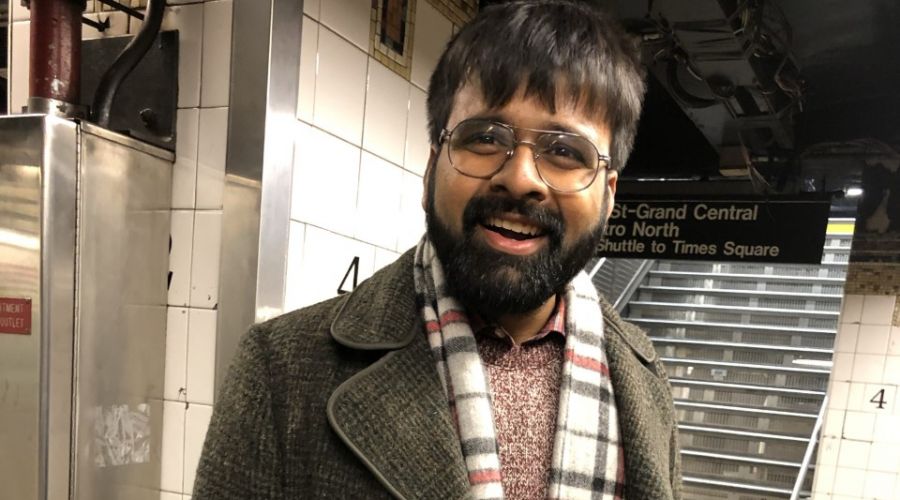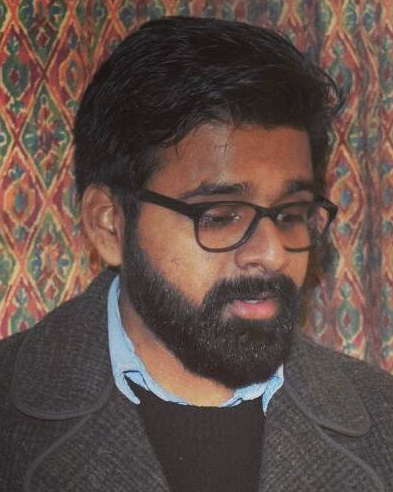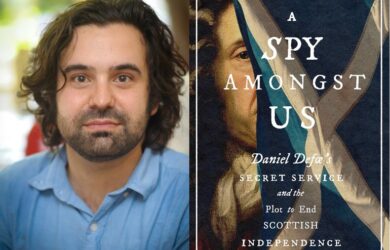
Ananth Kumar has won a competitive international fellowship to study the mechanistic basis of IncRNA function.
The Gates Cambridge Scholarship provided the support and opportunity for me to learn techniques such as recombinant multiprotein complex production, nuclear magnetic resonance and cryo-electron microscopy.
Ananth Kumar
A Gates Cambridge Scholar has been awarded a prestigious fellowship focused on cutting edge interdisciplinary research and will use it to understand fundamental mechanisms in biology.
Ananth Kumar [2015] is among 65 outstanding early-career life scientists chosen for the three-year Human Frontier Science Program (HFSP) from a pool of applicants from more than 50 countries. The fellowship is awarded by the International Human Frontier Science Program Organization (HFSPO) with the aim of encouraging innovative interdisciplinary life science research.
In line with HFSPO’s mission of promoting international collaboration, the newly selected fellows will be carrying out research in a new field of biology in a country different from that of their PhD studies. As a Gates Cambridge scholar, Ananth pursued his PhD research in the lab of Lori Passmore at the MRC Laboratory of Molecular Biology. Using biochemistry and integrative structural biology, he studied the molecular architecture and activity of a large multiprotein machinery involved in processing messenger RNA (mRNA), the important intermediate between DNA and functional proteins.
Having gained experience in the structural biology of protein complexes involved in RNA processing, Ananth is turning his attention to apply these methods to long non-coding RNAs (lncRNAs).
He says: “The central dogma in biology states that DNA is transcribed into mRNA, which is translated into proteins. However, the majority of DNA in fact does not encode for protein; some of this DNA is transcribed into large lncRNAs, which do not require translation into proteins for their function. These molecules have been extensively studied genetically and by in vivo studies, but the mechanistic basis of their function is not well elucidated.”
With the support of the HFSP fellowship in the laboratory of Professor Anna Marie Pyle at Yale University, Ananth aims to understand the structure and function of lncRNAs in humans. In particular, he will focus on lncRNAs involved in maintaining the stability and expression of human DNA, including NORAD and Xist. Disregulation in the expression of these lncRNAs is associated with several diseases, including cancer.
Ananth says: “The Gates Cambridge Scholarship provided the support and opportunity for me to learn techniques such as recombinant multiprotein complex production, nuclear magnetic resonance and cryo-electron microscopy. Combined with the expertise in RNA structure determination and in vivo studies provided by the host laboratory, I will attempt to probe the composition and molecular architecture of lncRNAs and thereby understand their function. I hope that my expertise can be further applied to other medically important lncRNAs or viral RNAs.”

Ananthanarayanan Kumar
- Alumni
- India
- 2015 PhD Biological Science @ MRC LMB
- Churchill College
Structural studies of molecular machines and their assembly are my primary research interest. Ever since my Bachelors thesis project at Trans-Membrane Trafficking lab at OIST (Japan), I have been amazed by the tricky membrane proteins and the complexity behind their structural studies. My Masters thesis work at the Bio-membrane Functions Lab in Nagoya University (Japan) involved the functional and structural analysis of a flagellar inner membrane protein from Vibrio alginolyticus. During my Masters, I worked closely with Imada sensei's lab at Osaka University to learn X-ray crystallography. Next, as a summer intern at the Mancini lab at STRUBI (Oxford University), I developed a desire to know more about structural dissection of pathways associated with gene regulation such as Chromatin remodelling and mRNA processing. This led me to pursue my PhD research at the Passmore lab in MRC LMB with a GATES Cambridge scholarship. During my PhD, using an integrative structural biology approach, I unraveled the structural architecture of the eukaryotic mRNA 3' end polyadenylation machinery (https://doi.org/10.17863/CAM.43327). I specialise in using a combination of in vitro biochemistry, cryo-EM and NMR to study the structure and dynamics of protein-RNA complexes associated with fundamental cellular processes. I am now pursuing my postdoc research at the Pyle lab, MCDB, Yale University.
Previous Education
SASTRA University
Nagoya University












